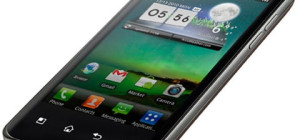 Technological innovation has successfully lent its hand in improving service provision in the banking and financial services and transportation industries. That’s why it’s no longer surprising that the healthcare sector is reevaluating clinical care, management and operations, and profitability to see if the latest technological advancements can aid them too. It’s also worth noting that emerging technologies can help alleviate many of the pain points in the healthcare industry.
Technological innovation has successfully lent its hand in improving service provision in the banking and financial services and transportation industries. That’s why it’s no longer surprising that the healthcare sector is reevaluating clinical care, management and operations, and profitability to see if the latest technological advancements can aid them too. It’s also worth noting that emerging technologies can help alleviate many of the pain points in the healthcare industry.
We compiled a list of five emerging technologies that may disrupt the healthcare industry.
The Internet of Things
The Internet of Things (IoT) is making healthcare provision efficient and reliable in a multitude of ways. IoT-enabled devices are turning remote health monitoring into reality, allowing medical practitioners to provide the best care possible to patients in real-time. The following list shows some of the benefits of IoT use in the healthcare sector:
- Tracking patients’ real-time locations: Medical institutions are now collaborating with tech startups to come up with medical devices, such as scales, nebulizers, wheelchairs, and defibrillators, equipped with sensors to allow them to monitor patients’ environments in real-time. These would help doctors make sure there are no irritants present in the patients’ surroundings.
- Monitoring vital signs: Today’s wearables have been instrumental in tracking patients’ medical conditions. Some smartwatches, for instance, can help measure patients’ blood pressure, heart rate, and the number of calories they burn, to name a few.
- Exchanging data: IoT also allows medical practitioners to collaborate on patient care, especially for rare and sensitive cases. The ease of sharing real-time data (with patient approval, of course) among specialists allows patients to receive the best possible care.
With improved data gathering about a patient’s condition and environment, healthcare practitioners can now provide patients with the best care possible even without physical contact.
Natural Language Processing
Natural language processing (NLP) is a specialized branch of artificial intelligence (AI) that focuses on interpreting human-generated written or spoken data. In the healthcare industry, it can help in:
- Organizing clinical notes: Aside from treating patients, doctors also have to deal with tons of paperwork. Clinical notes can pile up and become difficult to analyze. NLP can help healthcare professionals structure data, summarize it, and provide relevant and accurate insights, allowing physicians to focus more on caring for their patients.
- Forecasting possible complications: The predictive analytics that comes with NLP-powered systems can help improve patient diagnoses and prognoses, particularly in fast-paced environments such as the emergency room where quick decision making is necessary.
NLP can be a critical element in improving clinical decision-making and patient health outcomes.
Three-Dimensional Printing
Since its invention, three-dimensional (3-D) printing has already made a significant impact across several industries. In healthcare, it is vital in:
- Creating affordable custom-made prosthetics: 3-D printing allows amputees to get better-fitted prosthetics. Some technologically advanced 3-D prosthetics can even come with features that enable them to “think and feel.”
- Engineering tissues: 3-D printing is also beneficial to organ implantation and skin grafting.
- Manufacturing ergonomic surgical tools: Surgeons can benefit from 3-D printing, as well. They can use it to have customized and ergonomic surgical instruments made, which would let them carry out tasks with accuracy and efficiency.
- Creating diagnostic images: 3-D printing can help doctors come up with 3-D versions of X-rays or CT scans, which let them assess patients’ conditions better. With these, they can also explain specific conditions to their patients better.

Blockchain
In the past, blockchain technology only served to facilitate cryptocurrency exchange. Today, it has evolved to benefit several industries. Its applications in the healthcare sector include:
- Improving pharmaceutical clinical trials: Blockchain helps record clinical trial results in real-time. This feature allows medical practitioners to gather accurate and comprehensive data to improve patient monitoring and drug-to-patient matching.
- Preventing drug fraud: By tracking the prescription drug supply chain with immutable timestamps, blockchain can help prevent drug fraud.
- Streamlining healthcare billing: The technology can also help decentralize records that are crucial to streamlining the payment process and recording methods while preventing forgery.
Machine Learning
Machine learning (ML) applications in healthcare are still in the infancy stage. While tons of ML models are currently in the production stage, most of them come with algorithms that can learn from data inputs. These can aid in diagnostic procedures and treatment processes. Some of the innovative applications of ML in the healthcare sector include:
- Improving image analyses: ML can be useful for pathologists who want to identify minute scan changes, allowing them to detect early stages of malignancies and other health conditions.
- Providing virtual nursing care: The healthcare industry can introduce ML-powered chatbots to communicate and attend to patients.
Technology offers massive advantages in the healthcare industry. When used correctly, it has the power to improve patients’ health and even lengthen their lifespan.






![Top CEOs under 30-The Young Guns Of Technology [Infographic]](https://lerablog.org/wp-content/plugins/wp-thumbie/timthumb.php?src=http://lerablog.org/wp-content/uploads/2015/03/the-young-guns-of-technology.jpg&w=300&h=140&zc=1)


